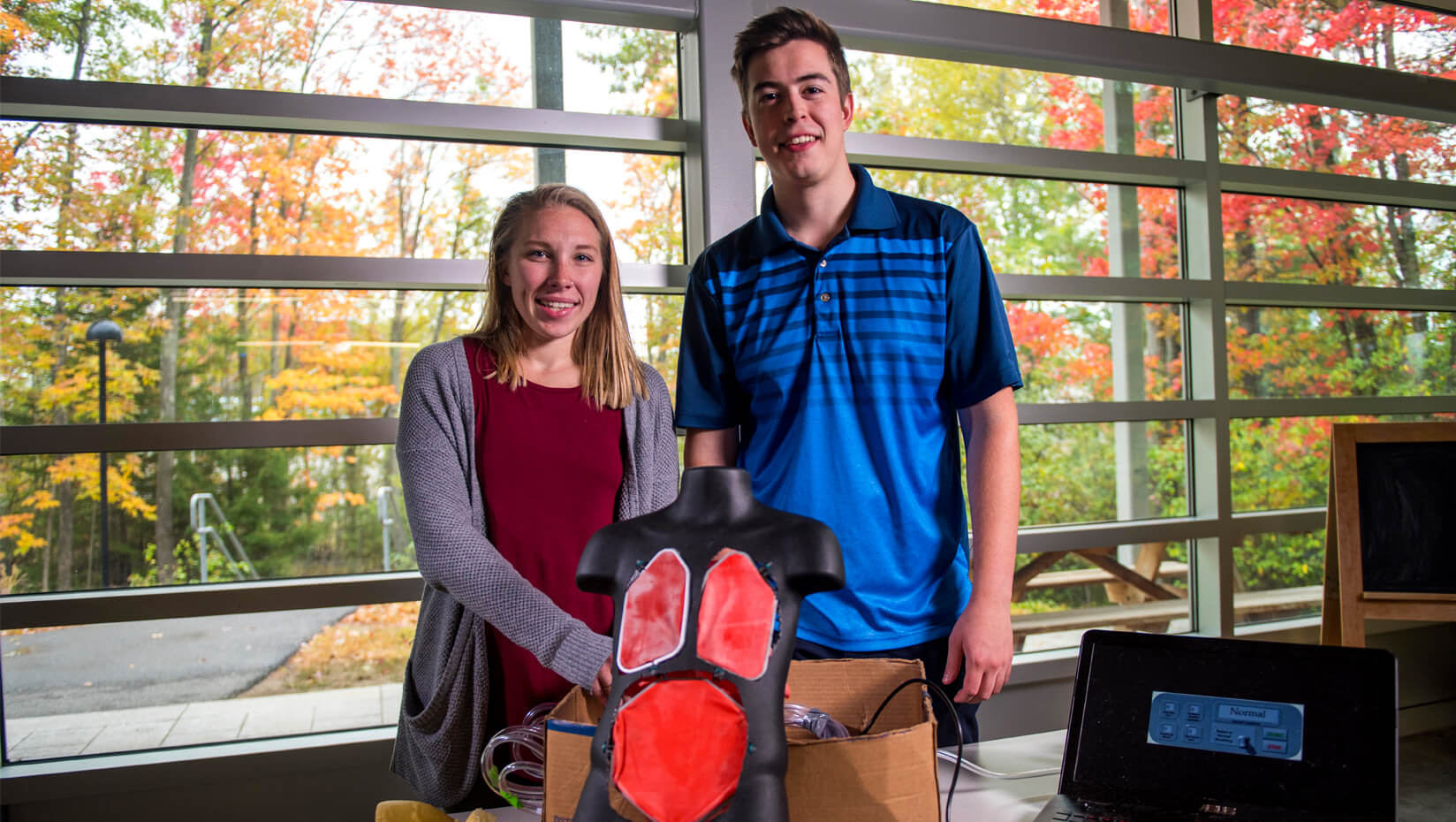
Students’ biomedical engineering spinoff company receives VentureWell funding
A group of biomedical engineering graduate students at the University of Maine has been selected by nonprofit VentureWell to receive funding and training to develop their medical simulation startup.
The students are receiving a $5,000 grant to help build their spinoff company, Zephyrus Simulation LLC.
As part of their senior capstone, the students developed a cost-efficient, realistic simulator to train medical professionals in diagnosing and responding to critical respiratory situations.
The funding comes from VentureWell’s E-Team Student Grant Program. VentureWell announced Dec. 4 it has awarded 18 student teams more than $200,000 in its winter 2018 cohort.
E-Teams receive grants of up to $25,000 and get training through an early-stage innovator training program. The training provides peer networking, expert coaching, national recognition, and hands-on workshops to move innovations forward.
“It is an honor to be selected for the VentureWell program. The E-Team program will undoubtedly help us bring our venture to the next level,” says Patrick Breeding, Zephyrus Simulation’s CEO and a UMaine graduate student in biomedical engineering.
The winter 2018 cohort includes 10 teams that are each receiving a $5,000 Stage 1 grant, and eight teams that are receiving a $20,000 Stage 2 grant. The teams will attend three-day workshops in Boston; Stage 1 E-Teams will focus on discovering the best market for their inventions, and Stage 2 E-Teams will work to develop and validate their business models.
The E-Team Grant Program targets students with an idea or invention that could potentially solve a real-world, social need. Over the past 20 years, more than 700 grants have been given through VentureWell to help teams move ideas out of the lab and into the market.
“The Zephyrus team is showing how you can take an idea you have as a student and turn it into a product which can go out into the world and start to help people,” says Caitlin Howell, a UMaine biomedical engineering professor and the team’s adviser.
For their biomedical engineering senior capstone design project in 2017, the UMaine students were tasked with creating a pediatric breathing simulator capable of displaying realistic lung and diaphragm movements.
Biomedical engineering professors Howell and Karissa Tilbury advised the students — Breeding of East Granby, Connecticut; Banton Heithoff of Oldwick, New Jersey; Amber Boutiette of Skowhegan, Maine; and Madeline Mazjanis of Portland, Maine. Like Breeding, Boutiette and Mazjanis now are pursuing master’s degrees in biomedical engineering at UMaine. Heithoff is a researcher at IDEXX in Westbrook, Maine.
The capstone project won the undergraduate Innovation Award at UMaine’s 2017 Student Symposium. In October, Zephyrus Simulation, based in UMaine’s Foster Center for Student Innovation, won $500 in the Big Gig pitch event for innovators and entrepreneurs. This spring, the company will compete for the $5,000 grand prize offered by Big Gig, a partnership of municipalities, universities and organizations in Greater Bangor that works with local entrepreneurs to spur economic growth.
Zephyrus Simulation is pursuing a patent for the prototype, and also has received grants from the Libra Future Fund and Maine Technology Institute.
VentureWell is a nonprofit organization that supports the creation of an emerging generation of science and technology inventors and the innovation and entrepreneurship ecosystems that are critical to their success. More about VentureWell is online.
Contact: Elyse Catalina, 581.3747
